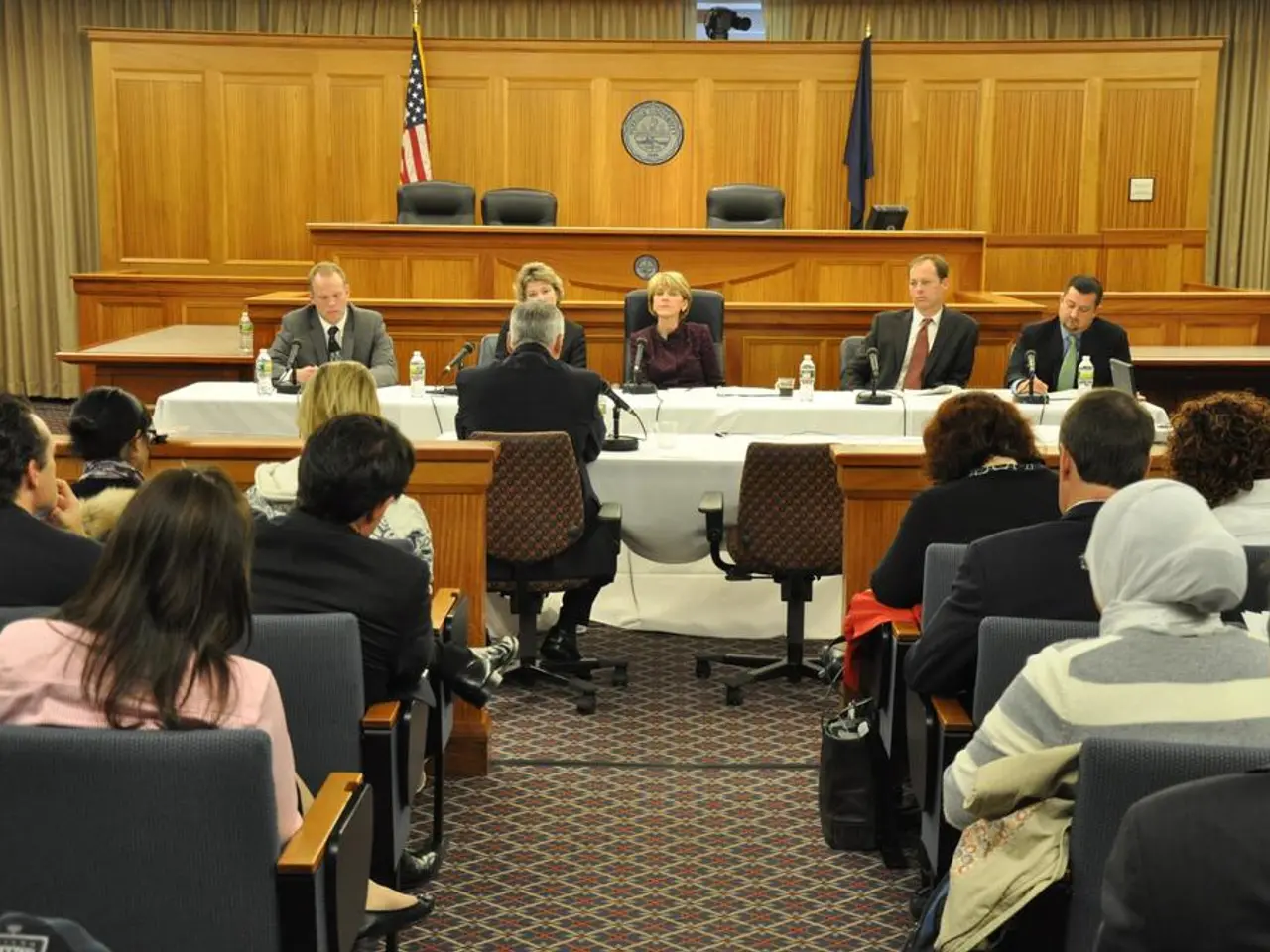Released Fraud Suspect and the Struggling Lower Saxony Justice System
Court Overturns Exorbitant Charges Imposed on Defendant, Allowing Him to Walk Free
The Oldenburg Higher Regional Court has recently set free a suspected criminal, citing the overburdened Lower Saxony justice system as the reason. This claim was made public by the CDU after the alleged member of a criminal clan, charged with fraud in 16 cases and forgery of documents in 84, was released from investigative custody.
Justice Minister Kathrin Wahlmann (SPD) confirmed the incident in the state parliament. The indictment was raised by the Central Office for Combating Criminal Clan Structures at the Public Prosecutor's Office in Osnabrück, she added. The suspect, who had supposedly admitted to some charges, was released due to the authorities’ failure to expedite proceedings as judged by the court.
This decision, according to Wahlmann, reflects a "structural deficit in the personnel equipment and administration of the justice system."
Criticizing the Oldenburg Regional Court's inability to swiftly commence the main hearing, the CDU's Carina Hermann claimed that the arrest warrant had to be lifted despite the conditions for pretrial detention being met. This surprising decision followed the suspect's admission of guilt, emphasized Hermann. Hermann believes that the blame should not fall upon the justice system.
Wahlmann: No Systemic Failure
Wahlmann firmly rejected the criticism, denying any systemic failures. Although three arrest warrants have reportedly been rescinded by higher court decisions so far this year, Wahlmann asserts that this is within the norm.
The Burdened Lower Saxony Justice System: A Wider Perspective
The justice system in Lower Saxony has been grappling with considerable challenges due to overburdening, which has significant ramifications for the handling of cases and the release of suspects.
Case Backlog and Processing Delays
The courts in Lower Saxony have been grappling with a growing number of asylum appeals since around 2016-2017. The administrative courts had over 361,000 pending cases at the end of 2017, many related to asylum procedures. Despite recent efforts aimed at accelerating asylum court procedures, the impact of these reforms is yet to be fully realized, as most pending cases predate these changes.
Understaffing and Capacity Constraints
The courts in Lower Saxony are understaffed and lack the necessary resources to effectively address the backlog. This under-resourcing affects not only asylum cases but the entire justice system, putting strain on judicial staff and potentially slowing down the legal process.
Implications for the Justice System
With the justice system overburdened, there is a growing risk that suspects may be released prematurely or without thorough judicial scrutiny due to the resulting procedural delays. Lengthened wait times for hearings and appeals can lead to situations where suspects remain in legal limbo or are released while their cases are still under review. This may undermine the effectiveness of law enforcement and public trust in the justice system.
Impact on Asylum and Criminal Cases
The overload particularly affects asylum-related procedures, consuming considerable judicial resources. The knock-on effect, however, extends to other criminal and administrative matters, resulting in delays across the board. This systemic strain challenges the courts’ ability to deliver timely justice.
Political and Social Tensions
The backlog and the perceived inadequacies of the judicial process contribute to broader social and political tensions. The complicated interplay between local, state, and federal authorities determines future policy decisions on judicial funding and reform, fuelling debates on responsibility for funding and resource allocations.
- The recent release of a fraud suspect, despite meeting conditions for pretrial detention, highlights the challenges facing the overburdened Lower Saxony justice system, as cases like general-news articles, crime-and-justice issues might be delayed due to case backlogs and processing delays, understaffing, and capacity constraints.
- In response to criticisms, Justice Minister Kathrin Wahlmann acknowledged the issues within the Lower Saxony justice system but denied any systemic failure, stressing that the number of arrest warrants rescinded by higher court decisions is within the norm, as the widespread implications for the handling of cases and the release of suspects, such as in politics and general-news, continue to present significant challenges.








